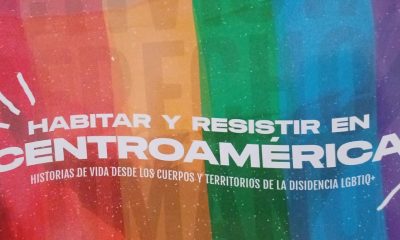Local
Casa Ruby brings its mission to El Salvador
Ruby Corado fled country’s civil war more than 30 years ago
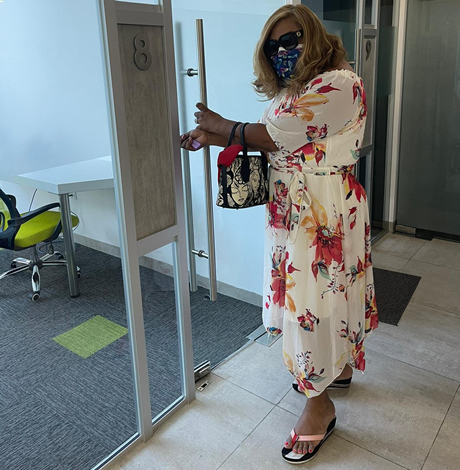
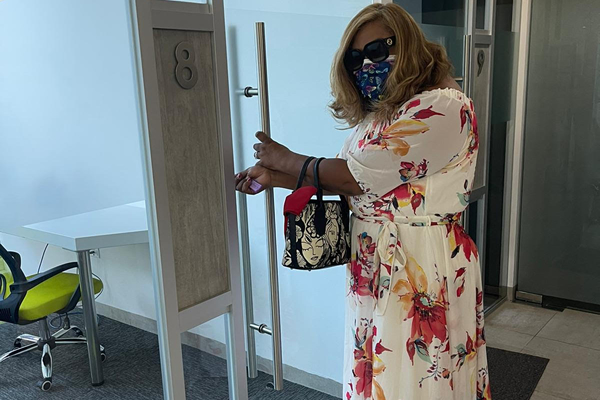
SAN SALVADOR, El Salvador — A Salvadoran woman who fled the civil war arrived in D.C. full of dreams and challenges, and after years of effort she and a group of friends founded Casa Ruby in order to provide services and social programs to vulnerable LGBTQ people. This is part of the story of Ruby Corado, a transgender woman and human rights activist who has undertaken the challenge of bringing Casa Ruby to the country in which she was born.
Corado, in her words, is “a Salvadoran who migrated, but a part of her stayed here.” She, upon hearing the stories of many LGBTQ people who migrated and others she has met who still live in El Salvador, said she felt the desire to fight for bringing those dreams and challenges to her homeland.
“Our work at Casa Ruby is to avoid suffering and (to offer) support through alliances, that is why we aim to share the programs for migrants that work in Washington because we have seen that they work,” Corado told the Washington Blade on March 18 during an interview from Casa Ruby’s new office in San Salvador, the Salvadoran capital. “We will do a little more work here in El Salvador so that the LGBTQ community has greater access to these opportunities.”
The commitment to solidarity that she has shown over the years is Corado’s best letter of introduction, which has led her to support global LGBTQ rights group that include the Latin American and Caribbean Network of Trans People (REDLACTRANS). Corado, through this work, has also realized the LGBTQ community needs a platform with programs that meet existing needs.
“I want to ensure that this new administration in the United States has a direct link from Washington to the global LGBT movement and as a trans woman, migrant, living with HIV and living in vulnerability, I want to be that voice with those international organizations that are disconnected from this reality,” says Corado, referring to international organizations based in El Salvador.
Casa Ruby’s main goals in El Salvador are to work for the LGBTQ community and support LGBTQ activists. Corado said Casa Ruby will not impose upon anyone its way of working, and their projects will aim to address present needs.
“My great project in El Salvador is a home to support displaced people,” Corado told the Blade as she smiled. “It will be a space for 15 people to start with.”
Casa Ruby in El Salvador will not only benefit vulnerable LGBTQ people, but LGBTQ people from other countries who need help.
The “Opportunity Project” will provide 25 vulnerable LGBTQ people with access to a scholarship for two years, a stipend and access to resources that will give them the tools they can use to build a better future.
“Something very important that I want to mention is that my father gave me the house to start Casa Ruby in El Salvador,” said Corado, adding she is grateful for the opportunity to be able to open the house to the community that needs help.
Corado said she hopes those who participate in the project will not be forced to flee El Salvador as she had to do in the past.
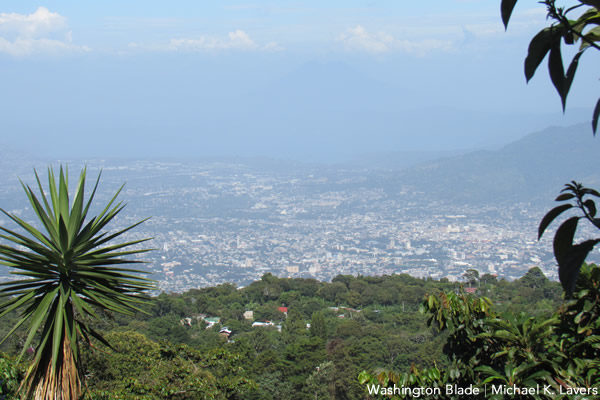
Corado, as director and founder of Casa Ruby, has empowered an entire LGBTQ movement in D.C.
Her team will be in charge of Casa Ruby’s operations in the nation’s capital. Corado will oversee both projects as she travels between the U.S. and El Salvador, and she will have a team in place in San Salvador that will include a communications coordinator who prefers to remain anonymous. Saul Palacios will work as director of operations and Ámbar Alfaro will be Casa Ruby’s director of programs and community outreach coordinator.
“Something we have in common with Ruby is that we share that way of dreaming and wanting to work from the community side,” Alfaro told the Blade. “It is something that has not happened in El Salvador because of different circumstances.”
“The fact that Casa Ruby is now in El Salvador with that model of working with the people and for the people is super important to me and makes me very happy to be able to continue here the legacy that Ruby has built and now has brought to her country,” added Alfaro, who also stressed Corado knows the reality through which the community in the country is currently living. “We have to work for our population in an orderly manner and with resources, with desire and conviction. This, above anything else, is what will always motivate us.”
“You have to have a heart and love your LGBTQ community to work at Casa Ruby,” Alfaro told the Blade. “And I saw that in her.”
Casa Ruby officially opened its San Salvador office on March 15, and has already begun to have meetings with both civil society and government representatives.
“We have already met with the National Youth Institute (INJUVE) to coordinate possible joint projects,” Corado said, enthusiastically. “They welcomed me to the country and for that I’m very happy.”
“We can build together as Salvadorans,” she added. “I do not expect everyone to receive me with open arms, but I guarantee that their voices will be present on the platforms that I have,”
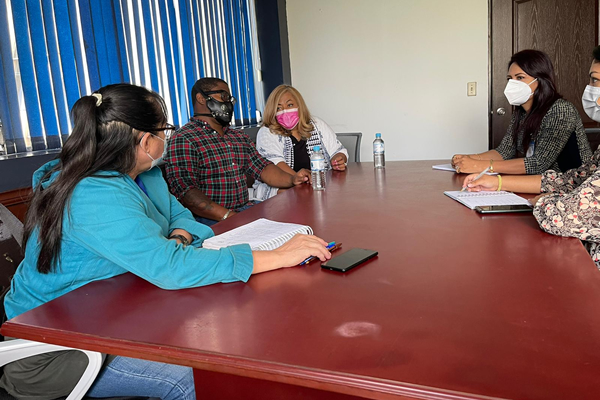
Corado, with tears in her eyes, told the Blade that being part of this project in El Salvador brings her full circle.
“It has been 31 years since I fled my country, and I am now here to give my love and support to my entire community that needs it,” she said.
Casa Ruby’s team in San Salvador plans to begin working within the next 90 days on the launch of a community project that will deliver scholarships to 10 Salvadoran LGBTQ organizations and another initiative that will provide highly vulnerable people with a way to support themselves. Casa Ruby also plans to begin a campaign to stop violence against LGBTQ children and open a shelter for LGBTQ people who need support.
This shelter is Casa Ruby’s flagship project. Another initiative to support vulnerable LGBTQ older adults is also in the works.
The Blade has published a version of this article in Spanish.
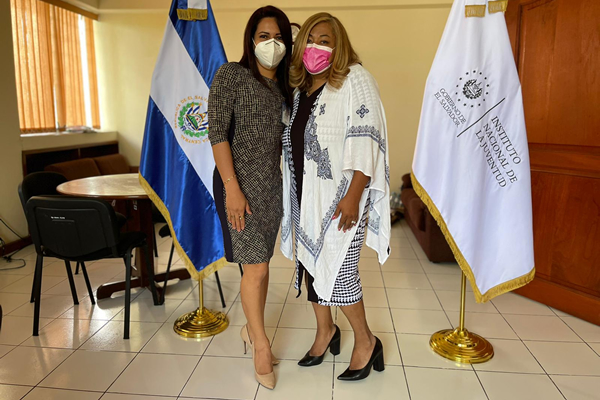
District of Columbia
D.C. Black Pride theme, performers announced at ‘Speakeasy’
Durand Bernarr to headline 2026 programming

The Center for Black Equity held its 2026 DC Black Pride Theme Reveal event at Union Stage on Monday. The evening, a “Speakeasy Happy Hour,” was hosted by Anthony Oakes and featured performances by Lolita Leopard and Keith Angelo. The Center for Black Equity organizes DC Black Pride.
Kenya Hutton, Center for Black Equity president and CEO, spoke following the performances by Leopard and Angelo. Hutton announced this year’s theme for DC Black Pride: “New Black Renaissance.”
Performers for 2026 DC Black Pride were announced to be Bang Garcon, Be Steadwell, Jay Columbus, Bennu Byrd, Rue Pratt and Akeem Woods.
Singer-songwriter Durand Bernarr was announced as the headliner for the 2026 festivities. Bernerr gave brief remarks through a video played on the screen at the stage.
DC Black Pride is scheduled for May 22-25. For more information on DC Black Pride, visit dcblackpride.org.
Virginia
Arlington LGBTQ bar Freddie’s celebrates 25th anniversary
Owner asks public to support D.C.-area gay bars

An overflowing crowd turned out Sunday night, March 1, for the 25th anniversary celebration of Freddie’s Beach Bar, the LGBTQ bar and restaurant located in the Crystal City section of Arlington, Va.
The celebration began as longtime patrons sitting at tables and at the bar ordered drinks, snacks, and full meals as several of Freddie’s well-known drag queens performed on a decorated stage.
Roland Watkins, an official with Equality NoVa, an LGBTQ advocacy organization based in the Northern Virginia areas of Arlington, Alexandria, and Fairfax County, next told the gathering about the history of Freddie’s Beach Bar and the role he said that owner Freddie Lutz has played in broadening the bar’s role into a community gathering place.
“Twenty-five years ago, opening a gay bar in Arlington was not a given,” Watkins told the crowd from the stage. “It took courage, convincing, and a deep belief that our community belongs openly, visibly, and proudly,” he said. “And that belief came from Freddie.”
Watkins and others familiar with Freddie’s noted that under Lutz’s leadership and support from his staff, Freddie’s provided support and a gathering place for LGBTQ organizations and a place where Virginia elected officials, and candidates running for public office, came to express their support for the LGBTQ community.
“Over the past 25 years, Freddie’s has become more than a bar,” Watkins said. “It has become a community maker.”
Lutz, who spoke next, said he was moved by the outpouring of support from long-time customers. “Thank you all so much for coming tonight and thank you all so much for your support over the past 25 years,” he said. “I can’t tell you how much that means to me and how much it’s kept me going.”
But Lutz then said Freddie’s, like many other D.C. area gay bars, continues to face economic hard times that he said began during the COVID pandemic. He noted that fewer customers are coming to Freddie’s in recent years, with a significant drop in patronage for his once lucrative weekend buffet brunches.
“So, I don’t want to be the daddy downer on my 25-year anniversary,” he said. “But this was actually the worst year we’ve ever had,” he added. “And I guess what I’m asking is please help us out. Not just me, but all the gay bars in the area.” He added, “I’m reaching out and I’m appealing to you not to forget the gay bars.”
Lutz received loud, prolonged applause, with many customers hugging him as he walked off the stage.

In an official statement released at the reveal event Capital Pride Alliance described its just announced 2026 Pride theme of “Exist, Resist, Have the Audacity” as a “bold declaration affirming the presence, resilience, and courage of LGBTQ+ people around the world.”
The statement adds, “Grounded in the undeniable truth that our existence is not up for debate, this year’s theme calls on the community to live loudly and proudly, stand firm against injustice and erasure, and embody the collective strength that has always defined the LGBTQ+ community.”
In a reference to the impact of the hostile political climate, the statement says, “In a time when LGBTQ+ rights and history continue to face challenges, especially in our Nation’s Capital, where policy and public discourse shape the future of our country, together, we must ensure that our voices are visible, heard, and unapologetically centered.”
The statement also quotes Capital Pride Alliance CEO and President Ryan Bos’s message at the Reveal event: “This year’s theme is both a declaration and a demand,” Bos said. “Exist, Resist, Have Audacity! reflects the resilience of our community and our responsibility to protect the progress we’ve made. As we look toward our nation’s 250th anniversary, we affirm that LGBTQ+ people have always been and always will be part of the United States’s history, and we will continue shaping its future with strength and resolve,” he concluded.
-

 India4 days ago
India4 days agoActivists push for better counting of transgender Indians in 2026 Census
-

 Advice4 days ago
Advice4 days agoDry January has isolated me from my friends
-

 District of Columbia4 days ago
District of Columbia4 days agoCapital Pride reveals 2026 theme
-

 National4 days ago
National4 days agoAfter layoffs at Advocate, parent company acquires ‘Them’ from Conde Nast

